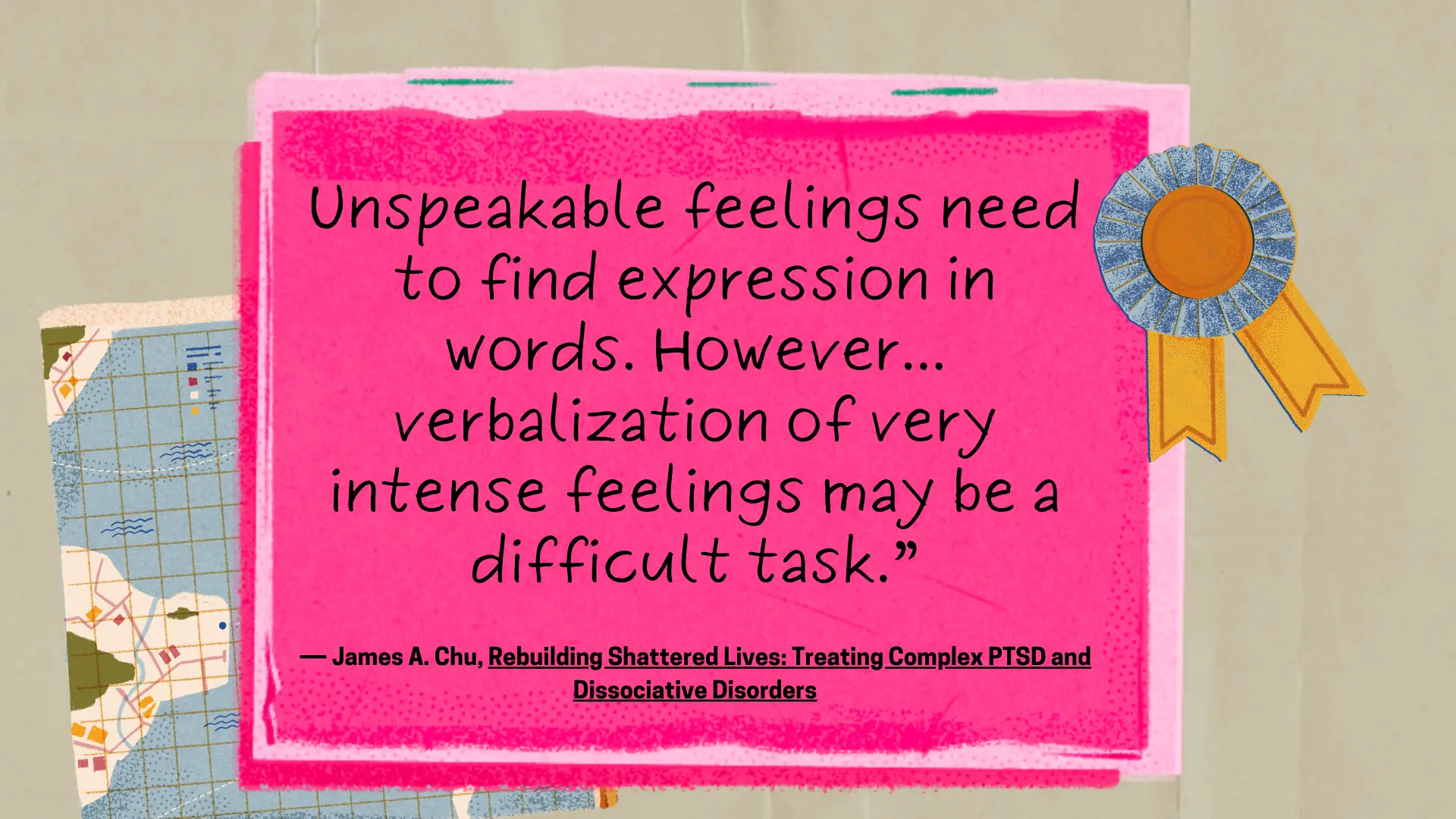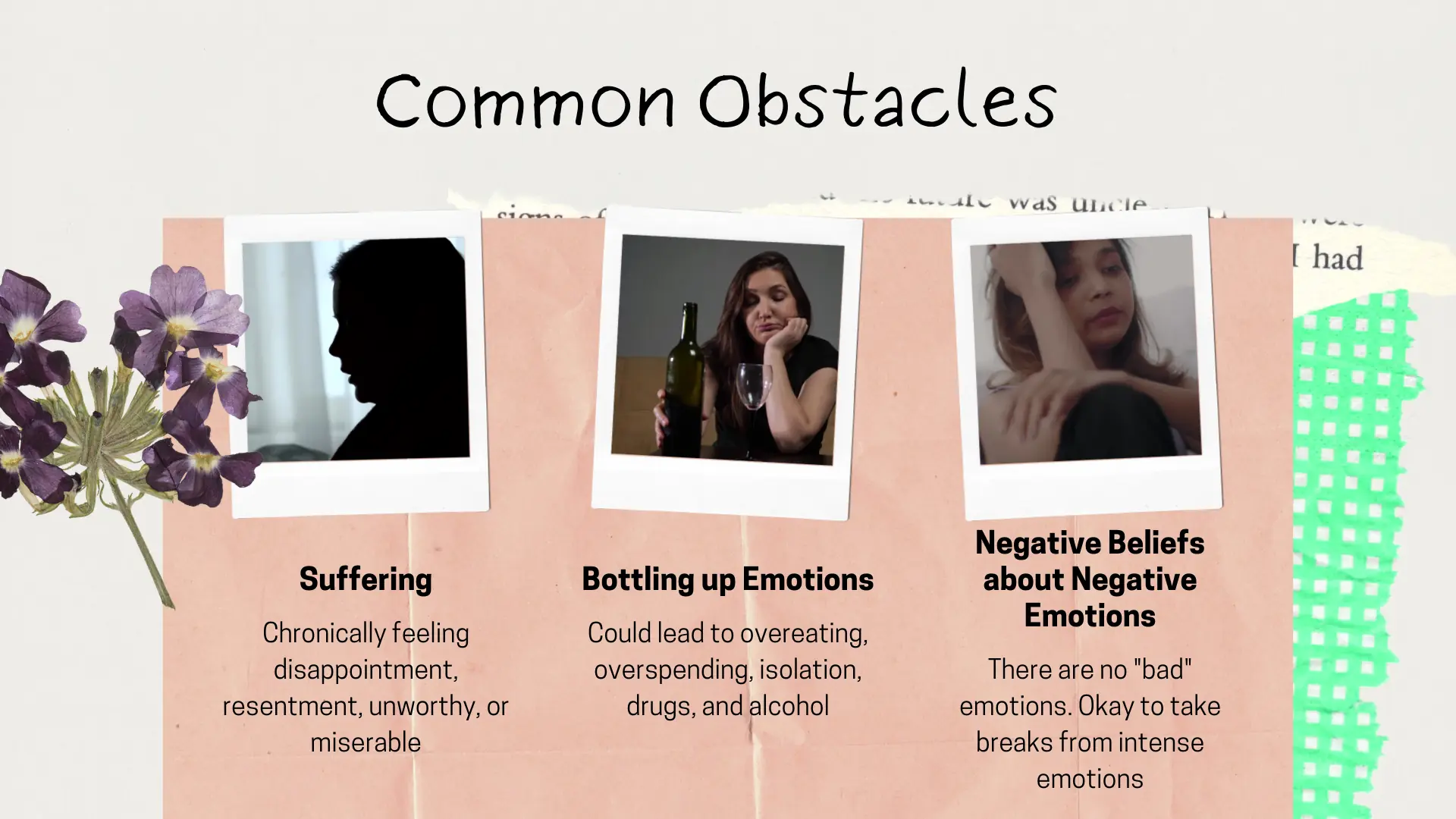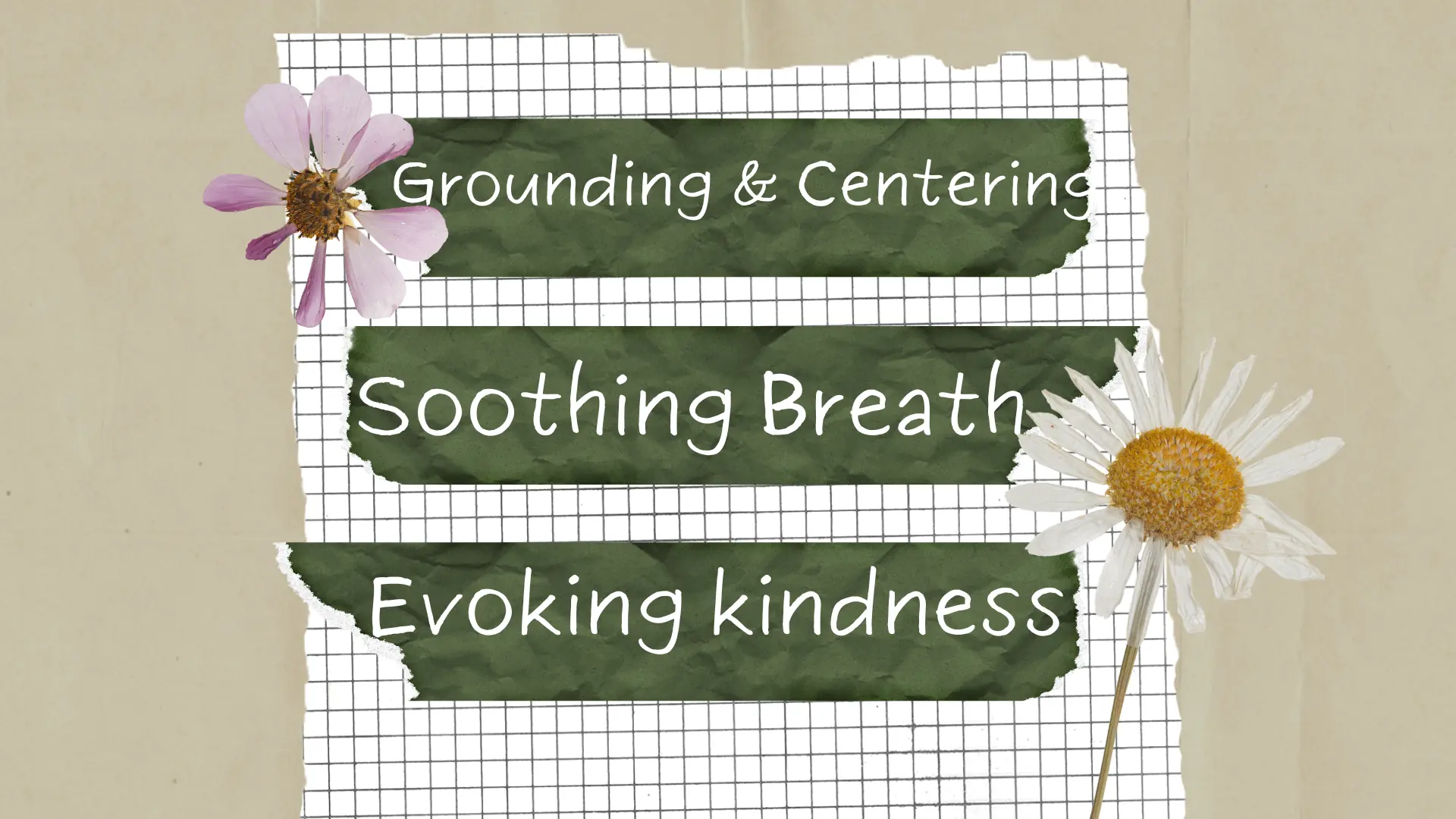Especially if you are recovering from a trauma history
What is emotion regulation?
A traumatic event(s) can often feel overwhelming, leaving us feeling powerless and lost. Emotion regulation is more than just managing your feelings; it is an art that allows you to regain control over your emotions in times of distress. It empowers you to face adversity head-on while fostering inner strength and resilience.

Not practicing emotion regulation could have a negative impact on your personal well-being and social relationships.

Common obstacles to regulating your emotions
I find myself at times doing anything to avoid facing icky, gross, stinky emotions. What have you tried in order not to feel?
The high cost of Avoiding Emotion
What happens when you avoid your emotions? In a world that often encourages you to push away your feelings, you may find yourself disconnected from your true self. Avoiding emotions can lead to a myriad of negative consequences, both on an individual level and in your relationships with others. However, by embracing or sitting with your emotions and allowing yourself to fully feel, you open up the possibility for healing, personal development, and stronger connections.
When you avoid emotions, you miss out on valuable opportunities for self-discovery. Your feelings serve as important signals that can guide you towards understanding your needs, desires, and boundaries. By suppressing or ignoring these emotions, you deny yourself the chance to explore your personal growth Avoiding feeling emotions may trap you in a cycle of stagnation where unresolved issues continue to fester beneath the surface. This festering can lead to depression, anxiety, suppressed immunity, other medical conditions, and even chronic pain.
Emotion regulation strategies
The benefits of practicing how to regulate both small and big feelings are multi folded. Truly sitting and feeling means being able to reduce the intensity of your emotions. This feels like magic. Sitting with feelings automatically helps us to move through them. Learning to regulate also prevents you for saying or doing something you regret. This is because you will no longer feel like a ticking time bomb.
Instead of avoiding what you feel when you are vulnerable, shift your approach. Slow down and truly feel your body, so that you can soothe your nervous system and access your underlying emotions.
Mindful Acceptance
Learning to "sit" with emotions as they come up. Accept them and let them pass.
“Emotional acceptance is a stance of perceiving that one is emotional, but deciding not to do anything about it, i.e., not to alter the emotion. Somewhat paradoxically, emotional acceptance is related to decreased negative emotions, as well as resilience. Thus, the absence of emotion regulation can sometimes have the best emotion regulatory function.”
~ Marianna Pogosyan, Ph.D.
Distanced Reflection
Replay the distressing situation in your mind while looking at yourself from a distance. Re-examine everything from a more objective fly-on-the-wall (than self-centered) point of view. See if you feel any different about the event.
Soothe Your Body & Heal
Somatic Experiencing Exercises teach you how to listen to your body. Trauma reactions are stored in your physical body and when you reconnect, you start recognizing the tension and tightness in your body. This acknowledgement of how you store emotions is central to learning how to regulate, heal, and grow.

Other emotion regulation skills include: Boundary Work - Identify your physical and emotional boundaries; Voo Breath (thank you Dr. Peter Levine) - soothing sounds and vibrations regulate your nervous system; tracking safety - What makes you feel safe? Create more of it; Shake it off (Dr. Peter Levine again) to change your emotional state.
In conclusion, emotion regulation is a crucial skill that can greatly impact your overall well-being and quality of life. By understanding and managing your emotions effectively, you can navigate through difficult situations with resilience and maintain positive relationships with others. While it may take time and practice to develop these skills, the benefits are immeasurable. Embracing emotion regulation and committing to cultivating a healthier emotional landscape for yourself is an excellent healing strategy.
To learn more, I’m offering a 15 min consult to empower you in your recovery. If you know you are ready to join a community of like minded professional women actively supporting each other, please join us at: This is Us: Healing From Trauma Together.



These are wonderful techniques in reiki we take it one step feature, placing the hands in the areas where you can feel the energy flowing and send loving energies to it.
Karen, what powerful points you make. Thanks! I hope my comment will post today, and I hope there will be a Subscribe button!